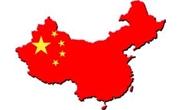Government/Policy

November 28, 2017
Commerce Self-Initiates Aluminum AD/CVD Investigation
Written by Sandy Williams
The U.S. Commerce Department has self-initiated an antidumping and countervailing investigation of imports of common alloy aluminum sheet from China.
Normally, AD/CVD investigations are initiated by petitioners within the industry who allege dumping or subsidization of a product by one or more countries. Commerce may self-initiate an investigation whenever the Secretary determines a need exists after review of available data. According to Commerce, imports of aluminum sheet were valued at an estimated $603.6 million in 2016.
“The Department has self-initiated these investigations based on information indicating that the United States price of common alloy sheet from China may be less than the normal value of such or similar merchandise and that imports of common alloy sheet from China may be benefiting from countervailable subsidies,” Commerce said in its statement. “The Department also has evidence that imports of common alloy sheet from China may be materially injuring, or threatening material injury to, the domestic industry producing common alloy sheet in the United States.”
In the past, self-initiation of investigations by Commerce were rare. Trade Attorney Lewis Leibowitz noted the historic aspect of the first AD/CVD cases self-initiated in more than 25 years.
“It portends, possibly, new self-initiated cases on steel products, as well,” said Leibowitz. “I’m speculating, but it may be an alternative to Section 232 relief for both industries”.
In 1991, Commerce self-initiated a countervailing investigation on softwood lumber from Canada, and in 1985, an antidumping investigation of semiconductors imported from Japan. The Trump administration has been focused on correcting what it perceives as trade imbalances and unfair pricing. In 2017, Commerce took the initiative to launch two Section 232 investigations into the impact of global imports of aluminum and carbon steel on national security. The Section 232 investigations have not yet concluded.
In its press release announcing the AD/CVD investigation, Commerce wrote: “Although the Department expects that future investigations will normally proceed based on fully supported petitions filed by or on behalf of the industry, the Department will take action to self-initiate investigations, where warranted, to facilitate the application of the appropriate trade remedy for U.S. industries.”
The merchandise covered by these investigations is common alloy aluminum sheet, which is a flat rolled aluminum product having a thickness of 6.3 mm or less, but greater than 0.2 mm, in coils or cut-to-length, regardless of width.
Commerce has estimated dumping margins of 56.54 to 59.72 percent and a subsidy rate above de minimus.
Next steps:
- The ITC will make its preliminary determination of injury by Jan. 12, 2018.
- If the ITC determination is affirmative, the DOC preliminary determination for the AD investigation is scheduled for April 17 and the CVD determination by Feb. 1.
- If both preliminary determinations are affirmative, DOC will make final AD determination by July 2 and a final CVD determination by April 17.
- If the DOC final determinations are affirmative, the ITC will make its final AD determination by Aug. 15 and the CVD determination by June 1.
- If the ITC final determination is affirmative, Commerce will issue orders on Aug. 22 for the AD investigation and on June 8 for the CVD investigation.
If at any stage of the investigation it is determined by the DOC that products are not being dumped or unfairly subsidized, or if the ITC determines there is no injury to the domestic industry, the investigation will be terminated.







